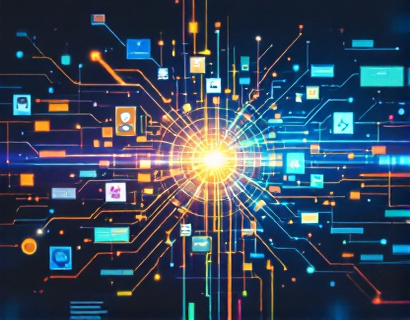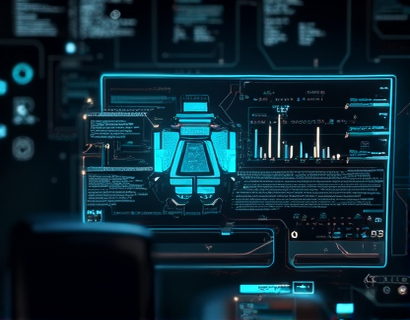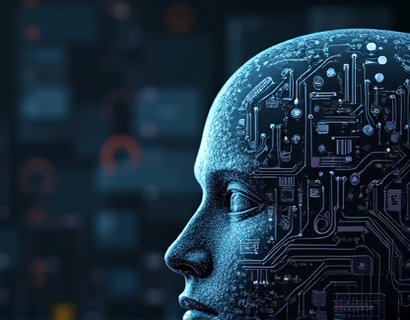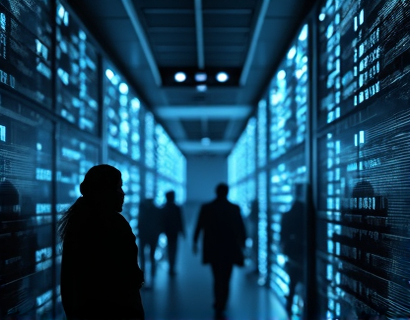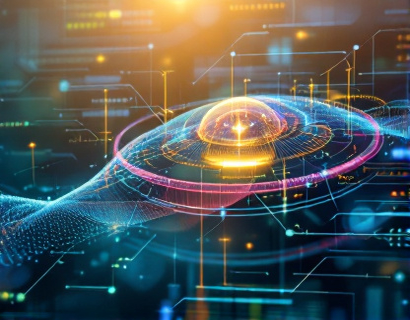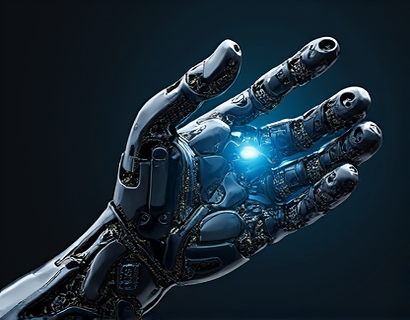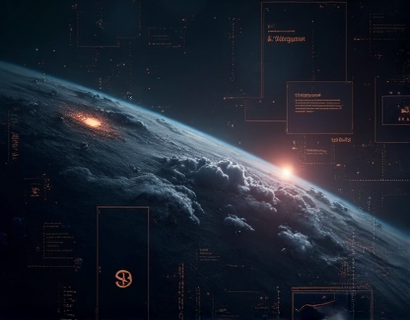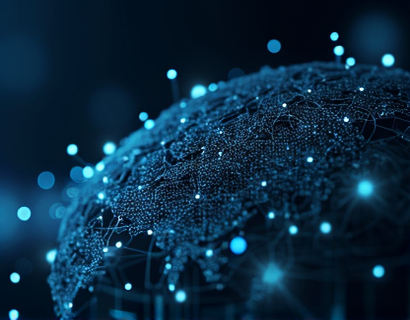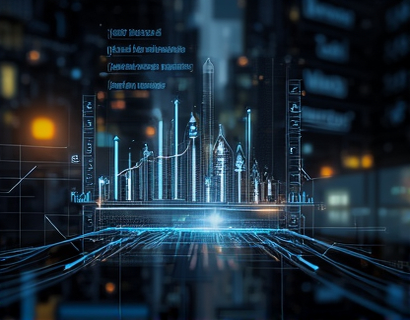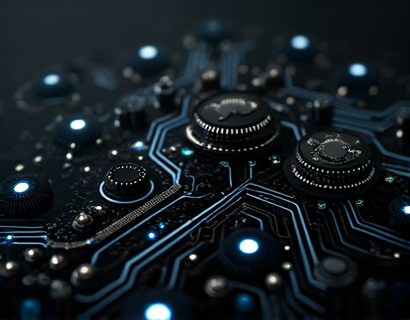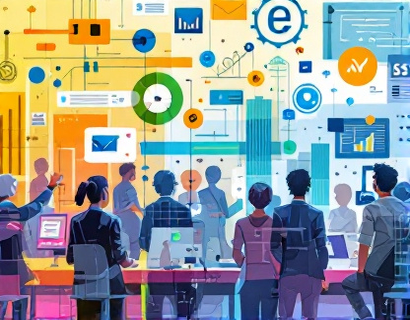Decentralized Productivity Supercharged: Leveraging AI and Crypto for Next-Gen Digital Solutions
The intersection of cryptocurrency and artificial intelligence (AI) is giving rise to a new era of decentralized productivity tools and digital solutions. This fusion is not just a technological curiosity but a transformative force that is redefining how we approach work, collaboration, and efficiency in the digital age. For tech enthusiasts and professionals alike, understanding the potential of these combined technologies is crucial for staying ahead in a rapidly evolving landscape.
The traditional centralized models of productivity and digital services are being challenged by decentralized alternatives that promise greater transparency, security, and user control. By integrating AI with blockchain technology, developers are creating innovative platforms that not only enhance productivity but also simplify complex tasks. This article delves into the mechanisms, benefits, and future prospects of this synergy, offering valuable insights for those interested in the intersection of technology and decentralization.
Understanding Decentralization and Its Impact on Productivity
Decentralization, at its core, refers to the distribution of functions or powers away from a central authority. In the context of digital solutions, this means moving away from centralized servers and control points to a network of nodes that collectively manage and process data. This shift has profound implications for productivity.
Firstly, decentralization enhances security. By distributing data across a network, the risk of a single point of failure is significantly reduced. This means that productivity tools and services are less vulnerable to cyber attacks and data breaches, ensuring that critical workflows remain intact. Secondly, decentralization promotes transparency, as all transactions and data exchanges are recorded on a public ledger, accessible to all participants. This level of transparency builds trust among users, which is essential for collaboration and efficient task execution.
Moreover, decentralization empowers users by giving them greater control over their data and digital assets. In a centralized system, users often have to trust third-party providers to manage their information, which can lead to issues of privacy and data misuse. Decentralized platforms, on the other hand, allow users to maintain ownership and control, leading to more autonomous and efficient work processes.
AI: The Catalyst for Smart Productivity
Artificial intelligence, with its ability to analyze vast amounts of data, learn from patterns, and make decisions, is a powerful catalyst for enhancing productivity. When combined with decentralized technologies, AI can drive innovation in ways that were previously unimaginable.
One of the key areas where AI shines is in automating repetitive and time-consuming tasks. In a decentralized environment, AI can be deployed across the network to handle tasks such as data validation, content moderation, and even complex computations. This automation not only speeds up processes but also reduces the cognitive load on users, allowing them to focus on higher-value activities.
AI-driven predictive analytics is another significant benefit. By analyzing historical data and identifying trends, AI can provide insights that help users make informed decisions. In a decentralized setting, these insights can be shared across the network, enabling collective intelligence and more robust decision-making. For example, in project management, AI can predict project timelines, resource allocation, and potential bottlenecks, helping teams stay on track and optimize their workflows.
Decentralized Productivity Platforms: A Closer Look
Several platforms are already leveraging the synergy between AI and decentralization to create next-generation productivity tools. These platforms are designed to be open, interoperable, and user-centric, offering a range of services from document collaboration to smart contract execution.
One such platform uses AI to facilitate smart contract development and execution. By automating the creation and enforcement of contracts, users can streamline agreements and transactions without the need for intermediaries. The AI component ensures that contracts are legally sound and adapt to changing conditions, reducing the risk of disputes and errors.
Another platform focuses on decentralized data storage and management. It employs AI to optimize data placement and retrieval, ensuring that information is stored efficiently and accessed quickly. This not only improves performance but also reduces costs associated with data storage and bandwidth.
Enhancing Collaboration Through Decentralized Tools
Collaboration is a cornerstone of modern productivity, and decentralized tools are redefining how teams work together. Traditional collaboration platforms often suffer from centralization issues, such as data silos and limited access control. Decentralized alternatives address these challenges by providing a more open and flexible environment.
For instance, a decentralized document editing platform uses AI to enable real-time collaboration without the need for a central server. Multiple users can edit the same document simultaneously, with AI ensuring that changes are merged seamlessly and conflicts are resolved automatically. This not only enhances productivity but also fosters a more collaborative and inclusive work culture.
Moreover, these platforms often incorporate blockchain-based reputation systems, which reward users for contributing value to the network. This incentivizes high-quality contributions and builds a community-driven ecosystem where users are motivated to improve and innovate.
Security and Privacy in Decentralized Productivity
Security and privacy are paramount in any productivity solution, and decentralized platforms powered by AI and blockchain offer robust protections. The decentralized nature of these platforms means that sensitive data is not stored in a single location, making it harder for malicious actors to target and compromise.
AI plays a crucial role in enhancing security by detecting and mitigating threats in real-time. Machine learning algorithms can identify unusual patterns and anomalies, triggering alerts and automated responses to potential security breaches. This proactive approach ensures that the platform remains secure and reliable, even as it scales to accommodate more users and data.
Privacy is another area where decentralized solutions excel. Users have control over their data and can choose what information to share and with whom. Blockchain's immutable ledger ensures that once data is recorded, it cannot be altered or deleted without consensus, providing a tamper-proof record of all activities. This level of transparency and control is invaluable for building trust and ensuring compliance with data protection regulations.
Challenges and Considerations
While the potential of decentralized productivity tools powered by AI and blockchain is immense, there are several challenges and considerations to keep in mind. One of the primary challenges is scalability. Decentralized networks can face performance issues as the number of users and transactions grows. However, ongoing research and development are addressing these challenges, with solutions like sharding and layer 2 protocols promising to enhance scalability without compromising decentralization.
Another consideration is the user experience. Decentralized platforms often require users to have a certain level of technical knowledge, which can be a barrier for adoption. To overcome this, user-friendly interfaces and intuitive design are essential. Additionally, education and community support play a crucial role in helping users navigate and benefit from these advanced technologies.
The Future of Decentralized Productivity
The future of decentralized productivity is bright, with ongoing innovations poised to further integrate AI and blockchain into our daily work lives. As more organizations and individuals recognize the benefits of decentralized solutions, we can expect to see a surge in the development of new platforms and applications.
One exciting area is the integration of AI-driven virtual assistants within decentralized frameworks. These assistants can handle a wide range of tasks, from scheduling and reminders to complex data analysis, all while respecting user privacy and autonomy. This convergence will not only enhance productivity but also create more personalized and efficient work environments.
Furthermore, the rise of decentralized finance (DeFi) and the integration of financial services into productivity platforms could revolutionize how we manage and monetize our work. Imagine a scenario where your productivity contributions are directly rewarded with tokens, which can be used to access premium services or traded on decentralized exchanges. This seamless integration of work and reward is a compelling vision for the future.
In conclusion, the combination of AI and decentralization is paving the way for a new era of productivity tools and digital solutions. By leveraging the strengths of both technologies, we can create more secure, transparent, and efficient systems that empower users and foster innovation. As this field continues to evolve, staying informed and adaptable will be key to harnessing the full potential of decentralized productivity.






